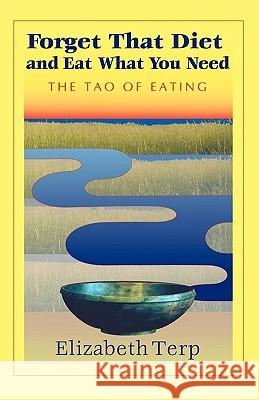Forget That Diet and Eat What You Need: The Tao of Eating » książka
Forget That Diet and Eat What You Need: The Tao of Eating
ISBN-13: 9781412024556 / Angielski / Miękka / 2010 / 128 str.
Americans are bombarded with so many rationales and diets that many among us reflect a confusion of choices that has little to do with the actual experience of food effects on our bodies. We can become so busy gathering knowledge that we have no energy or motivation to see the relationship between our food choices and our general well being.
This book neither promotes nor pans any existing diets. Instead, readers will find it useful as a guide to help decide which foods and manners of eating are best for them. The Tao of Eating reflects a way of living in harmony with all that we call life; it does not describe the process. Rather, it mirrors the philosophy of the Tao Te Ching: that living is deepened and informed by our turning inward and tapping into stillness as a source of clarity. The chapters are intended to be used as daily readings (or occasional readings.) They are not meant to be read all at once but, rather, assimilated and integrated over time and in harmony with the reader's needs.
The content was derived through comparison of 14 translations of the Tao Te Ching, by Lao Tzu, and through the use of supportive Taoist literature, all of which is listed in the bibliography. Since I do not read Chinese, and because each translator views the Tao from an individual's perspective, I used these several translations to gain a sense of the original content of each chapter.
The Tao is notably paradoxical; it speaks through the metaphor of water, which, while soft and apparently passive, can effortlessly wear away or break stone. Water enters a stagnant pool as readily as it does a flowing stream. Guided by Tao, no challenge is too great; all chaos can be transformed and harmonized. This approach applies to eating as well, and it serves to simplify and clarify the complexities and confusion inherent in America's foods and diets.











